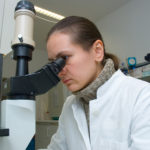
World’s largest inflammatory disease biobank to be created
The University of Manchester has reported that it is part of a national consortium which has been awarded a £1.7m grant to create the world’s largest Immune-Mediated Inflammatory Disease (IMID) Biobank, with data on over forty thousand people. The MRC funded project will be delivered by the IMIDBio-UK consortium, which brings together researchers from the … Continue reading World’s largest inflammatory disease biobank to be created

Lung cancer treatment may have negative effects on hearts
The University of Manchester has reported that new research has found radiotherapy treatment for lung cancer could have a negative effect on the health of the heart. Scientists from the University of Manchester’s Division of Cancer Sciences and the Christie NHS Foundation said it could reduce survival rates in people receiving the therapy by up … Continue reading Lung cancer treatment may have negative effects on hearts

Step forward in understanding oesophageal cancer
The University of Manchester has reported that its scientists have identified some key factors that establish oesophageal cancer cells. Professor Andy Sharrocks and his clinical collaborator Dr Yeng Ang led a team which used a new approach; looking for molecular signatures within the human genome which act as markers for cancer cells. The signatures are … Continue reading Step forward in understanding oesophageal cancer

Bacteria cell wall mopping agents could treat chronic inflammatory diseases like Type 2 diabetes
The University of Manchester has reported that Professor Resia Pretorius from Stellenbosch University in South Africa and Professor Douglas Kell from the University of Manchester have conducted a series of studies that are drastically changing the way scientists think about the effect bacteria have on a number of diseases including Alzheimer’s disease, Parkinson’s disease, sepsis, … Continue reading Bacteria cell wall mopping agents could treat chronic inflammatory diseases like Type 2 diabetes

Urine test shown to help lower blood pressure
The University of Manchester has reported that a research team led by one of its professors has shown that a urine test, developed previously in Leicester, leads to a drop in blood pressure in people who had been struggling to regularly take their blood pressure lowering tablets. Professor Maciej Tomaszewski led the team from the … Continue reading Urine test shown to help lower blood pressure

A new way to prevent a deadly fungal infection spreading to the brain
University of Birmingham-led research has discovered a way to stop a deadly fungus from hijacking the body’s immune system and spreading to the brain. The team studied cryptococcosis, a disease that infects humans and animals after breathing in airborne fungi. The disease can result in a lung infection that may subsequently spread to the brain … Continue reading A new way to prevent a deadly fungal infection spreading to the brain

Breakthrough in the treatment of anal cancer
Specialists at The Christie NHS Foundation Trust and University of Manchester have made a breakthrough which could potentially improve detection and treatment of anal cancer, as well as have wider implications for other cancers. Anal cancer is a rare form of cancer, but cases have increased dramatically in recent years. Research is urgently needed to … Continue reading Breakthrough in the treatment of anal cancer

Way to predict worsening frailty in men over forty discovered
University of Manchester scientists have discovered how to predict worsening frailty in men over the age of forty. Dr Agnieszka Swiecicka, a Clinical Research Fellow, says frailty in men is less likely to get worse in four years if they have higher levels of the anabolic hormones vitamin D, insulin-like growth factor-1 (IGF-1) and its … Continue reading Way to predict worsening frailty in men over forty discovered

New Medicine Service will save NHS England £517.6m
A team of health economists has found a scheme launched by the Department of Health in 2011 to help patients stick to their drug regimens has been so successful, that in its first five years, it will save NHS England £517.6m in the long-term. Lead researcher Professor Rachel Elliott from the University of Manchester said … Continue reading New Medicine Service will save NHS England £517.6m

You’re 20% more likely to die in the North of England than in the South
University of Manchester research has found dying early (under seventy five) is 20% more likely in northern compared with southern England. The study uncovered a North-South divide in deaths among middle aged adults, which has been rising since the mid nineties. There were 1.2 million more early deaths in the North of England from 1965 … Continue reading You’re 20% more likely to die in the North of England than in the South








